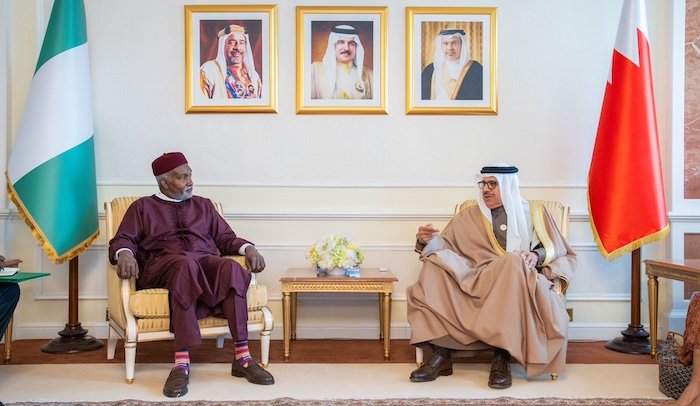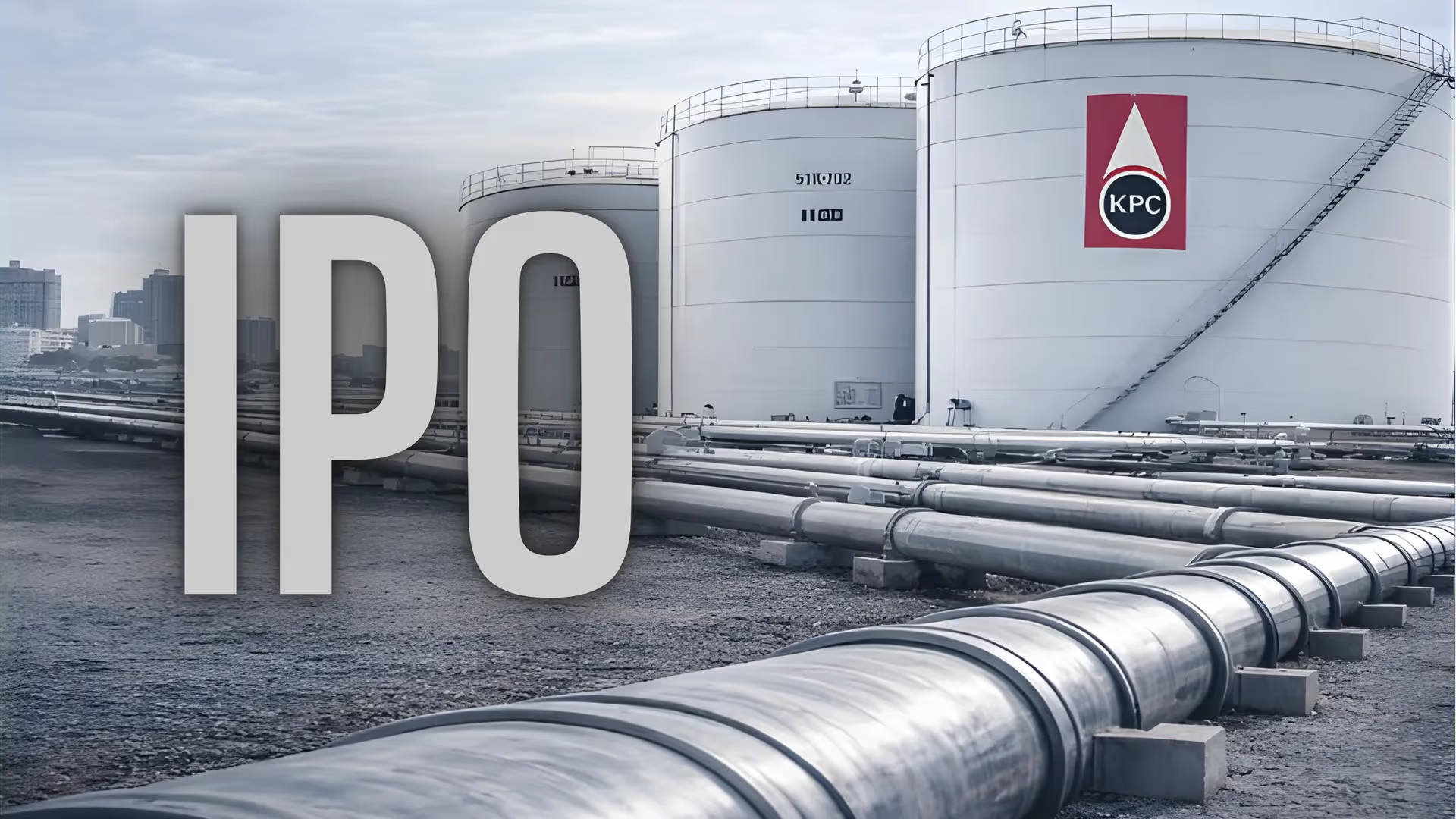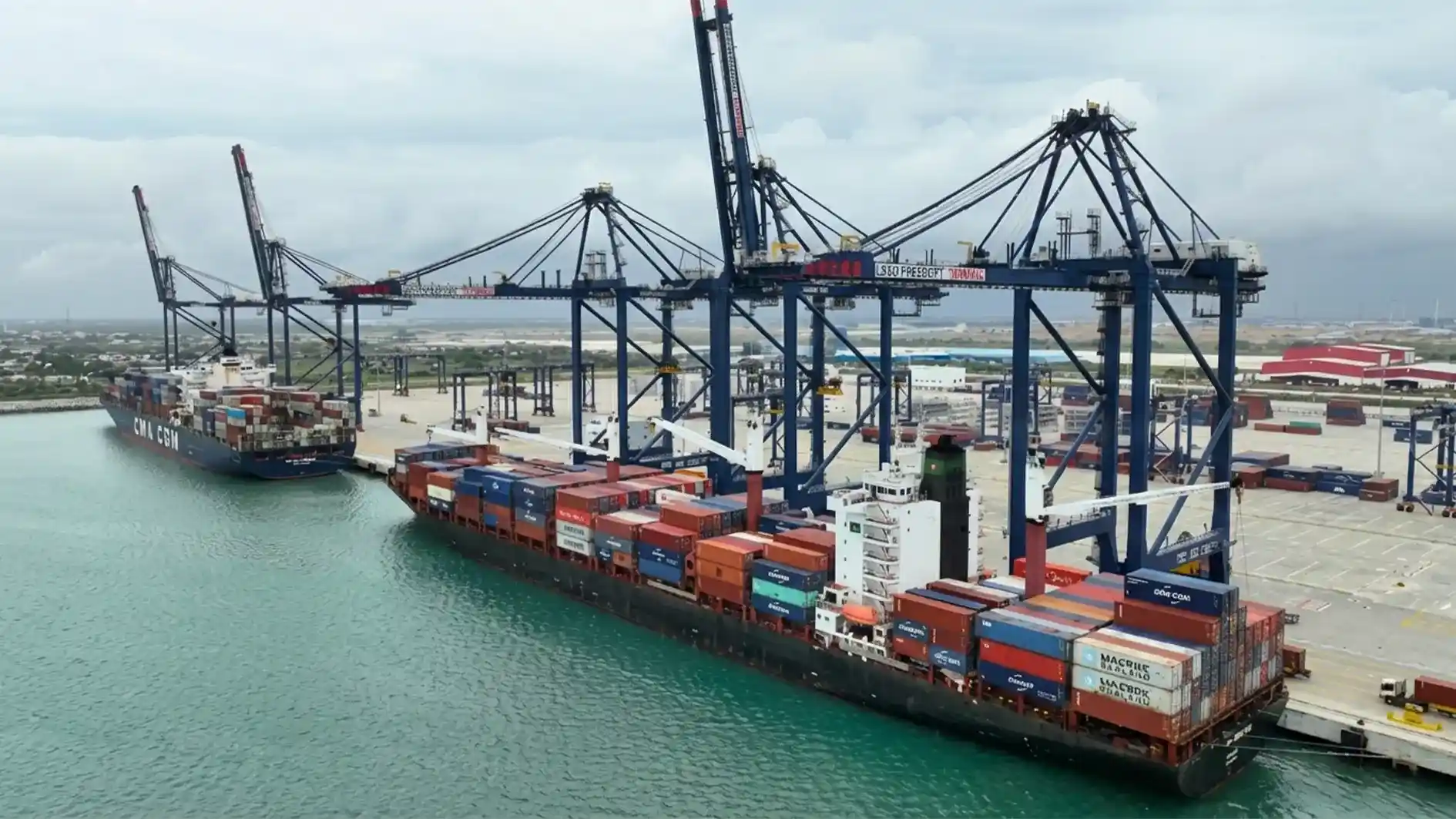In a historic development, Nigeria and Bahrain have officially signed a landmark trade and diplomatic agreement aimed at strengthening bilateral ties, fostering economic cooperation, and facilitating investments between the two nations. This agreement represents a crucial step in deepening economic collaboration and opening new opportunities for businesses and investors in both countries.
The signing took place during the recent visit of Nigeria’s Minister of Foreign Affairs, Ambassador Yusuf Maitama Tuggar, to Manama, the capital of Bahrain. The high-level diplomatic engagement saw Ambassador Tuggar meet with his Bahraini counterpart, Dr. Abdullatif bin Rashid Al Zayani, to discuss trade, investment, and diplomatic relations, culminating in the official signing of a Joint Communiqué to establish and enhance cooperation between Nigeria and Bahrain.
Strategic Importance of the Nigeria-Bahrain Partnership
The deal is set to unlock vast opportunities in multiple sectors, including oil and gas, trade, investment, and diplomatic training, among others. The significance of this agreement goes beyond immediate economic gains, as it positions both countries to leverage each other’s strengths to drive long-term growth and stability.
For Nigeria, the partnership with Bahrain presents an opportunity to attract Foreign Direct Investment (FDI) and expand access to the Middle Eastern markets. For Bahrain, the deal strengthens its influence in Africa and deepens economic engagement with one of Africa’s largest economies.
Key Highlights of the Nigeria-Bahrain Agreement
- Enhanced Trade and Investment Cooperation
- The agreement aims to boost bilateral trade volumes by removing trade barriers and facilitating smoother business engagements between Nigerian and Bahraini companies.
- Investment incentives are expected to encourage Bahraini businesses to establish a presence in Nigeria and vice versa, particularly in the oil and gas, manufacturing, and finance sectors.
- The deal aligns with Nigeria’s commitment to diversifying its economy beyond oil exports, making Bahrain an important partner in sectors such as banking, logistics, and industrial development.
- Collaboration in the Oil and Gas Industry
- With Nigeria being Africa’s largest crude oil producer and Bahrain having a strong presence in oil refining and petrochemicals, the partnership will enable both countries to collaborate in energy exploration, refining, and production.
- The agreement includes discussions on developing the 8th Train LNG project, which is expected to further boost Nigeria’s liquefied natural gas (LNG) exports.
- Diplomatic and Institutional Training
- The agreement outlines plans to strengthen diplomatic training programs for Nigerian officials, leveraging Bahrain’s expertise in global diplomacy and governance.
- Bahrain will offer specialized programs and capacity-building initiatives to train Nigerian diplomats, fostering greater cooperation in multilateral organizations.
- Multilateral Cooperation
- Both countries will work closely in international and regional organizations to promote their shared interests in global trade, security, and economic development.
- The partnership aims to strengthen diplomatic engagements within institutions such as the United Nations (UN), African Union (AU), and the Gulf Cooperation Council (GCC).
- Economic Diversification and Infrastructure Development
- Nigeria’s commitment to diversifying its economy aligns with Bahrain’s expertise in developing financial services, industrial infrastructure, and logistics.
- The partnership will encourage joint ventures in banking, fintech, and the digital economy, with Bahraini investors expected to explore opportunities in Nigeria’s rapidly growing tech ecosystem.
What This Agreement Means for Nigeria
Nigeria, Africa’s most populous country and largest economy, has been actively seeking new economic partnerships to attract foreign investment and expand trade beyond traditional partners. Bahrain, with its well-established financial markets, advanced oil-refining industry, and strategic location in the Middle East, presents an ideal partner for Nigeria’s growth ambitions.
Boosting Foreign Direct Investment (FDI)
One of Nigeria’s primary goals is to increase foreign direct investment into key sectors, including energy, manufacturing, technology, and infrastructure. The Nigeria-Bahrain agreement is expected to:
- Provide access to Bahrain’s financial markets, allowing Nigerian companies to secure investments.
- Encourage Bahraini firms to set up operations in Nigeria, leveraging its vast consumer market and natural resources.
- Facilitate knowledge exchange in areas like industrial development, economic policies, and investment strategies.
Energy Sector Expansion
Nigeria’s partnership with Bahrain could help the country expand its oil and gas industry, particularly through:
- Technology transfer and expertise sharing in oil refining and petrochemical industries.
- Investment in natural gas production, supporting Nigeria’s ambitions to become a leading LNG exporter.
- Infrastructure development for oil transportation and storage, reducing losses and increasing export capacity.
Strengthening Diplomatic Relations
Beyond economic benefits, the deal positions Nigeria as a key player in Middle East-Africa relations. Strengthened ties with Bahrain could pave the way for deeper engagements with the Gulf Cooperation Council (GCC), creating new avenues for trade and diplomacy.
What This Agreement Means for Bahrain
For Bahrain, the agreement presents an opportunity to expand its economic influence in Africa, a region with immense investment potential. Nigeria’s large and growing economy provides Bahraini businesses access to new markets, particularly in industries like:
- Banking and Finance: Bahrain is known as a major financial hub in the Middle East, and this agreement will allow Bahraini financial institutions to explore opportunities in Nigeria’s banking and fintech sectors.
- Logistics and Trade: Nigeria’s seaports, railways, and road infrastructure development create potential for Bahraini logistics firms to invest in trade facilitation and transportation.
- Technology and Innovation: With Nigeria emerging as a technology hub in Africa, Bahraini firms may find investment opportunities in fintech, e-commerce, and digital services.
Strengthening GCC-Africa Relations
Bahrain’s growing interest in Africa reflects a broader trend within the Gulf Cooperation Council (GCC), where Gulf countries are increasingly looking at Africa for investment and trade partnerships. By solidifying its ties with Nigeria, Bahrain could act as a bridge for stronger GCC-Africa economic cooperation.
Challenges and Future Considerations
While the Nigeria-Bahrain agreement presents significant opportunities, there are also challenges that both nations must navigate:
- Regulatory Differences: Differences in trade regulations, investment policies, and business environments may require further negotiations to ensure smooth implementation.
- Security Concerns: Nigeria has faced security challenges in certain regions, which may impact investor confidence. However, government reforms and improved security measures are expected to address these concerns.
- Logistical Barriers: The distance between the two countries presents logistical challenges for trade, but improved transportation and shipping agreements could mitigate these issues.
Conclusion: A New Era of Nigeria-Bahrain Relations
The signing of this landmark trade and diplomatic agreement marks a turning point in Nigeria-Bahrain relations, setting the stage for increased economic cooperation, investment, and diplomatic engagement.
For Nigeria, the deal aligns with its broader economic diversification strategy and ambition to attract more foreign investments. For Bahrain, the agreement serves as a gateway to expand its presence in African markets, tapping into Nigeria’s economic potential.
The coming months will be crucial in determining how both countries implement this agreement. As discussions continue and new projects take shape, the Nigeria-Bahrain partnership could become a model for future trade agreements between Africa and the Middle East, strengthening ties between these two dynamic regions.
Ready to take your career to the next level? Join our dynamic courses: ACCA, HESI A2, ATI TEAS 7 , HESI EXIT , NCLEX – RN and NCLEX – PN, Financial Literacy!🌟 Dive into a world of opportunities and empower yourself for success. Explore more at Serrari Ed and start your exciting journey today! ✨
photo source: Google
By: Montel Kamau
Serrari Financial Analyst
10th January, 2025
Article, Financial and News Disclaimer
The Value of a Financial Advisor
While this article offers valuable insights, it is essential to recognize that personal finance can be highly complex and unique to each individual. A financial advisor provides professional expertise and personalized guidance to help you make well-informed decisions tailored to your specific circumstances and goals.
Beyond offering knowledge, a financial advisor serves as a trusted partner to help you stay disciplined, avoid common pitfalls, and remain focused on your long-term objectives. Their perspective and experience can complement your own efforts, enhancing your financial well-being and ensuring a more confident approach to managing your finances.
Disclaimer: This article is for informational purposes only and does not constitute financial advice. Readers are encouraged to consult a licensed financial advisor to obtain guidance specific to their financial situation.
Article and News Disclaimer
The information provided on www.serrarigroup.com is for general informational purposes only. While we strive to keep the information up to date and accurate, we make no representations or warranties of any kind, express or implied, about the completeness, accuracy, reliability, suitability, or availability with respect to the website or the information, products, services, or related graphics contained on the website for any purpose. Any reliance you place on such information is therefore strictly at your own risk.
www.serrarigroup.com is not responsible for any errors or omissions, or for the results obtained from the use of this information. All information on the website is provided on an as-is basis, with no guarantee of completeness, accuracy, timeliness, or of the results obtained from the use of this information, and without warranty of any kind, express or implied, including but not limited to warranties of performance, merchantability, and fitness for a particular purpose.
In no event will www.serrarigroup.com be liable to you or anyone else for any decision made or action taken in reliance on the information provided on the website or for any consequential, special, or similar damages, even if advised of the possibility of such damages.
The articles, news, and information presented on www.serrarigroup.com reflect the opinions of the respective authors and contributors and do not necessarily represent the views of the website or its management. Any views or opinions expressed are solely those of the individual authors and do not represent the website's views or opinions as a whole.
The content on www.serrarigroup.com may include links to external websites, which are provided for convenience and informational purposes only. We have no control over the nature, content, and availability of those sites. The inclusion of any links does not necessarily imply a recommendation or endorsement of the views expressed within them.
Every effort is made to keep the website up and running smoothly. However, www.serrarigroup.com takes no responsibility for, and will not be liable for, the website being temporarily unavailable due to technical issues beyond our control.
Please note that laws, regulations, and information can change rapidly, and we advise you to conduct further research and seek professional advice when necessary.
By using www.serrarigroup.com, you agree to this disclaimer and its terms. If you do not agree with this disclaimer, please do not use the website.
www.serrarigroup.com, reserves the right to update, modify, or remove any part of this disclaimer without prior notice. It is your responsibility to review this disclaimer periodically for changes.
Serrari Group 2025
















